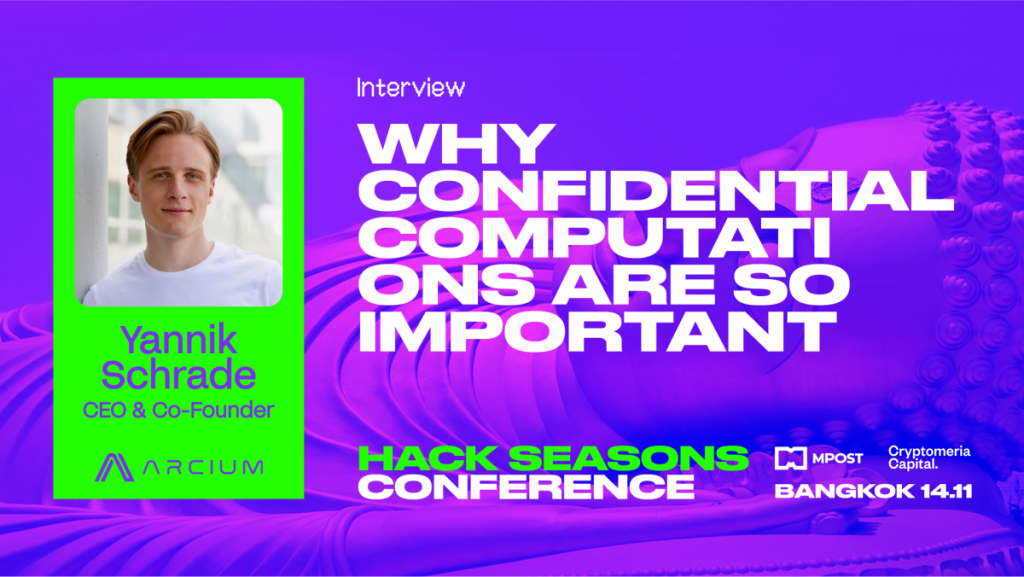How Arcium’s Supercomputer is Paving the Way for Decentralized AI and Confidential Computing


In Brief
Yannik Schrade, Co-founder and CEO of Arcium introduces Arcium: a groundbreaking, stateless network built solely for confidential computations. Not an L1, not a blockchain—just pure, scalable, and accessible compute power!

At the Hack Seasons Conference in Bangkok, Yannik Schrade, Co-founder, and CEO at Arcium, shared some insightful thoughts on the current market and its future, particularly regarding the decentralized world and confidential computing.
He believes the market’s optimism right now is primarily driven by political factors rather than any major technological breakthroughs. People are beginning to see new potential to build transformative technologies that can make a real-world impact. Governments and enterprises are starting to see how what has been developed in recent years can finally be implemented, fueling a sense of optimism.
When looking ahead, Schrade highlighted the importance of onboarding enterprises and institutional players into the decentralized world, particularly in the field of confidential computing and confidential AI. He sees this as a significant shift, especially as Arcium’s recent acquisition of a major Web2 competitor brings years of expertise in cryptographic and confidential work into the Web3 space. This move aims to integrate that technology into Arcium’s network, creating an open infrastructure for confidential computing. Schrade emphasized that confidential AI is key for decentralized AI, and this transition will make it a practical tool for real-world applications.
Regarding scalability and performance in the context of global supercomputing, Schrade explained that Arcium’s design is tailored for both scalability and accessibility. The company’s network, Arcium, is solely focused on confidential computing, operating as a stateless architecture separate from traditional blockchains. This approach allows the system to process computations in parallel at the speed of light, significantly enhancing scalability. Additionally, the design is accessible by accepting computations from off-chain sources, meaning businesses don’t have to rely on smart contracts or blockchain integration to tap into the power of confidential computing.
Disclaimer
In line with the Trust Project guidelines, please note that the information provided on this page is not intended to be and should not be interpreted as legal, tax, investment, financial, or any other form of advice. It is important to only invest what you can afford to lose and to seek independent financial advice if you have any doubts. For further information, we suggest referring to the terms and conditions as well as the help and support pages provided by the issuer or advertiser. MetaversePost is committed to accurate, unbiased reporting, but market conditions are subject to change without notice.
About The Author
Victoria is a writer on a variety of technology topics including Web3.0, AI and cryptocurrencies. Her extensive experience allows her to write insightful articles for the wider audience.
More articles

Victoria is a writer on a variety of technology topics including Web3.0, AI and cryptocurrencies. Her extensive experience allows her to write insightful articles for the wider audience.

















































